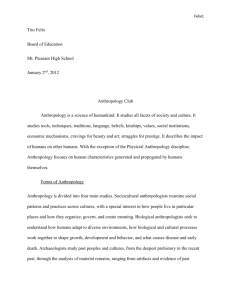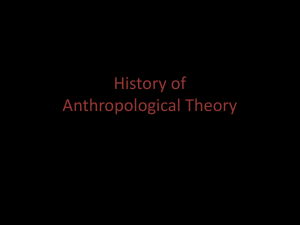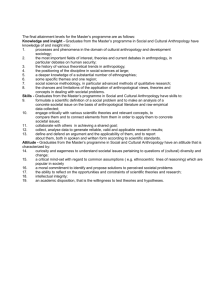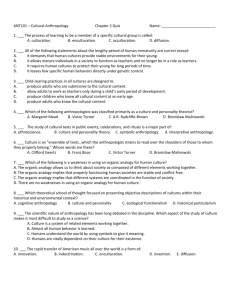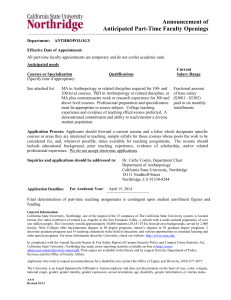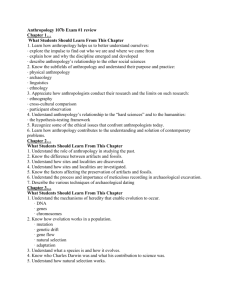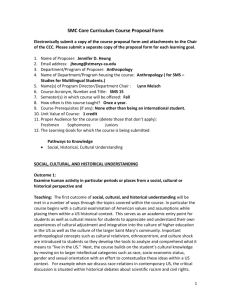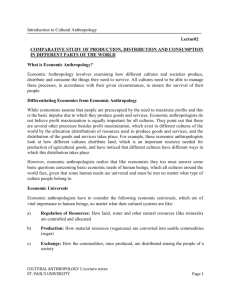Course Description
advertisement
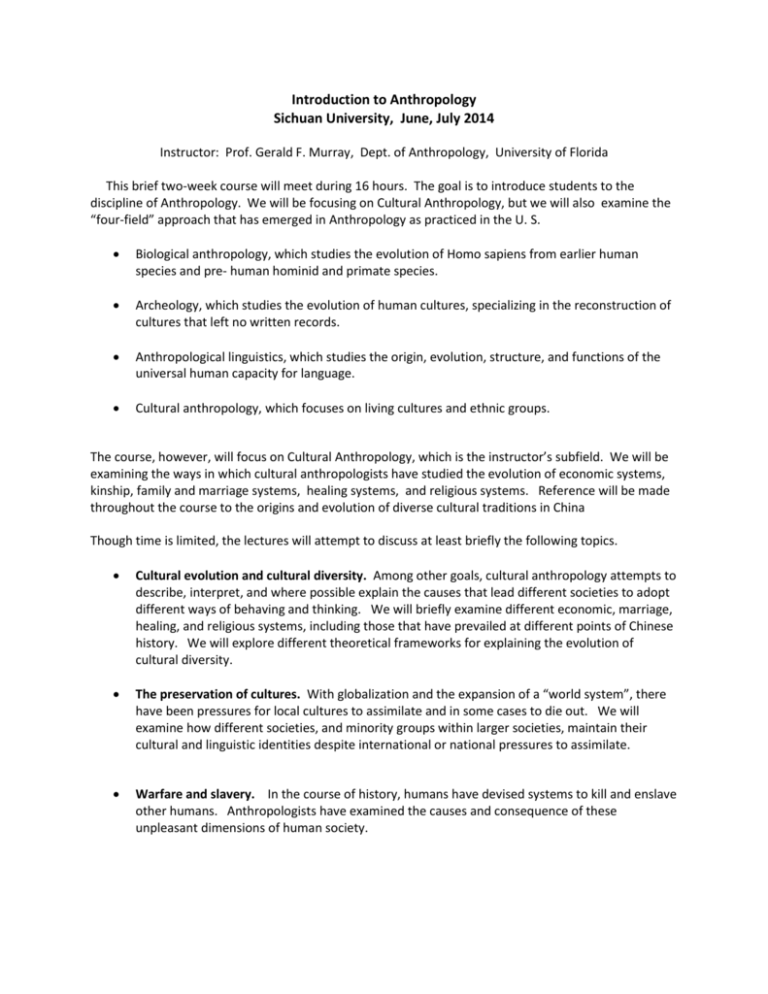
Introduction to Anthropology Sichuan University, June, July 2014 Instructor: Prof. Gerald F. Murray, Dept. of Anthropology, University of Florida This brief two-week course will meet during 16 hours. The goal is to introduce students to the discipline of Anthropology. We will be focusing on Cultural Anthropology, but we will also examine the “four-field” approach that has emerged in Anthropology as practiced in the U. S. Biological anthropology, which studies the evolution of Homo sapiens from earlier human species and pre- human hominid and primate species. Archeology, which studies the evolution of human cultures, specializing in the reconstruction of cultures that left no written records. Anthropological linguistics, which studies the origin, evolution, structure, and functions of the universal human capacity for language. Cultural anthropology, which focuses on living cultures and ethnic groups. The course, however, will focus on Cultural Anthropology, which is the instructor’s subfield. We will be examining the ways in which cultural anthropologists have studied the evolution of economic systems, kinship, family and marriage systems, healing systems, and religious systems. Reference will be made throughout the course to the origins and evolution of diverse cultural traditions in China Though time is limited, the lectures will attempt to discuss at least briefly the following topics. Cultural evolution and cultural diversity. Among other goals, cultural anthropology attempts to describe, interpret, and where possible explain the causes that lead different societies to adopt different ways of behaving and thinking. We will briefly examine different economic, marriage, healing, and religious systems, including those that have prevailed at different points of Chinese history. We will explore different theoretical frameworks for explaining the evolution of cultural diversity. The preservation of cultures. With globalization and the expansion of a “world system”, there have been pressures for local cultures to assimilate and in some cases to die out. We will examine how different societies, and minority groups within larger societies, maintain their cultural and linguistic identities despite international or national pressures to assimilate. Warfare and slavery. In the course of history, humans have devised systems to kill and enslave other humans. Anthropologists have examined the causes and consequence of these unpleasant dimensions of human society. Human impact on the environment. Some human cultures have modified and damaged the environment. We will examine the causes of ecological devastation as well as recent attempts to protect the environment. Applied anthropology. We will also the ways in which anthropology can be applied to the solution of practical policy issues – such as the design of more effective educational, medical , environmental, or other social programs. Students will be asked to examine to what degree such anthropological contributions could be relevant to Chinese society. Because of the brevity of the course, we cannot go into depth on any of these topics. But anthropological approaches to these matters can be briefly discussed in the lectures. Whereas Cultural Anthropology in China has focused heavily on the traditions and customs of ethnic minorities, Anthropology in the West has begun to deal with issues affecting specific human populations and our entire species as a whole. Requirements. Depending on the size of the enrollment, students will do either brief writing assignments based on the classroom lectures or take an exam on the final day of class. Final decisions as to requirements will be made when the size of the class has been determined. Attendance will be monitored and counted for 15% of the grade.

